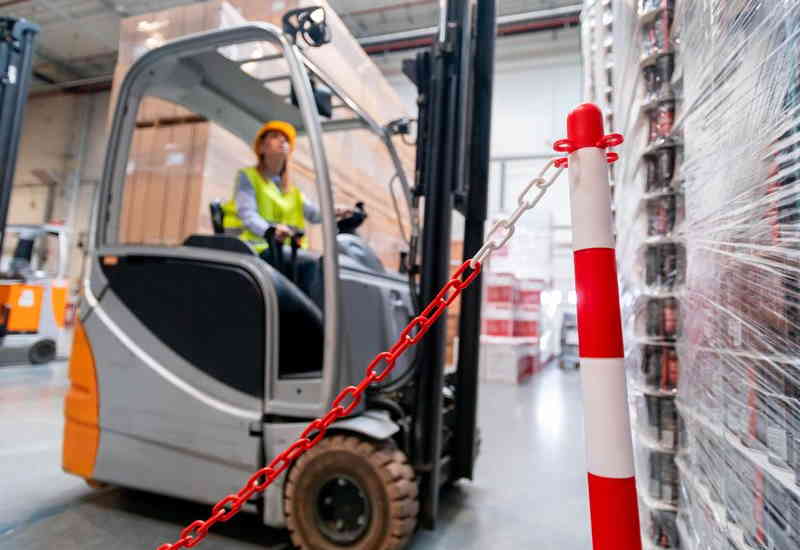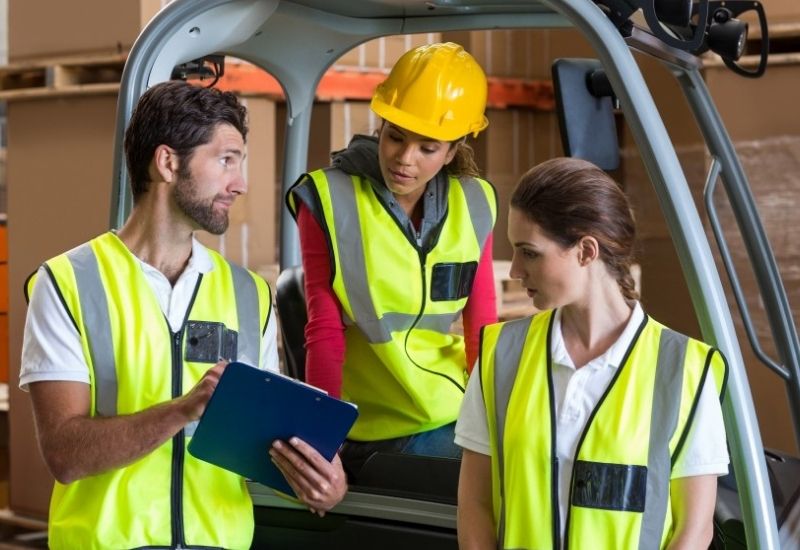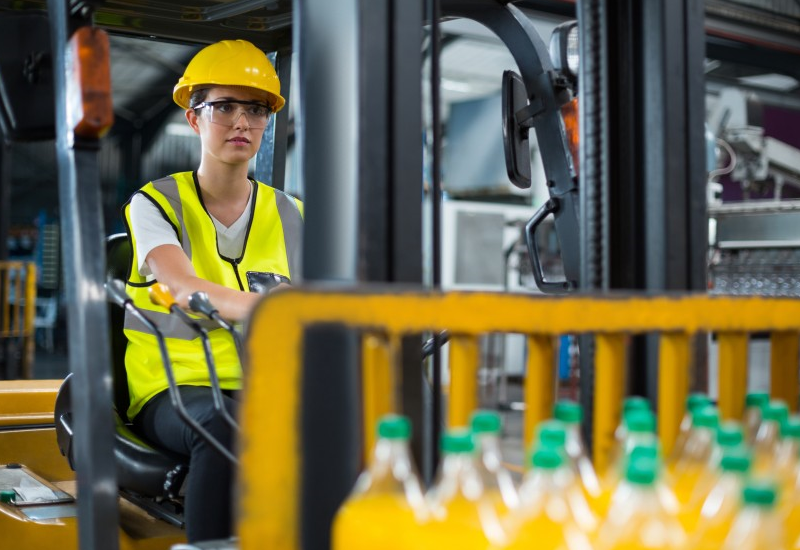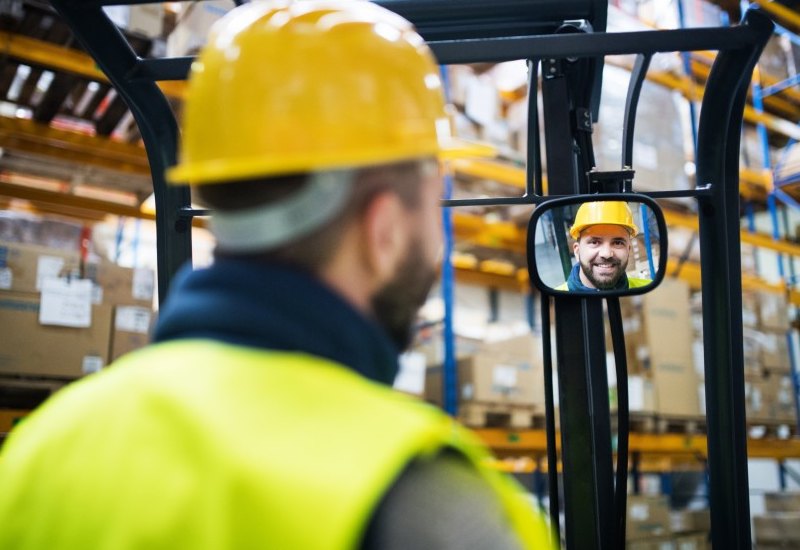
Forklifts are dangerous machines for workers to operate; some of the hazards they encounter daily include equipment forklift tip-overs, pedestrian accidents, being crushed or run over, or falling off the lift truck. This line of work isn’t to be taken lightly and OSHA records of incidents and fatalities in the industry show that.
Businesses may suffer significant losses in terms of time and money if a workplace accident occurs, as can the expense of forklift maintenance or replacement due to operating or third-party damage.
That’s why it’s critical to understand the many types of forklift insurance available. Independent and knowledgeable agents are usually required to alleviate the trouble of comparing policies on your own and guiding you through the many insurance options.
Does a forklift need insurance?
Commercial vehicle insurance is required by law in the United States. If you are a business owner and you operate commercial vehicles for your company, you need commercial vehicle insurance too. Like with your private automobile, if you drive a business car or truck for work, it must be insured.
Advice from independent insurance brokers ensures you receive the right advice and are protected with the right policy that’s specific to your business coverage needs.
Although this is often the case, you may want to consider additional protection for your vehicle(s). For example, in the event of a total or partial liability collision, comprehensive loss coverage will help protect you in most forklift accidents and auto liability. There’s also coverage if you hire a driver or if one of your workers needs to drive their car for business purposes.
How Much Does Forklift Insurance Cost?
The cost of your forklift insurance policy will be determined by the amount and value of the equipment your company uses and rents/leases yearly. Property values in bigger cities, such as New York City, are higher, thus construction-related lawsuits are far more expensive than those filed by businesses in smaller US towns.
As such, smaller firms with less expensive equipment will pay less for insurance coverage (premiums) than bigger corporations with a lot of pricey equipment.
Why Should I Get Forklift Insurance?
An efficient and safe workplace is usually a rewarding and profitable business. To ensure the well-being of yourself or your business, it’s imperative to understand forklift accidents and how insurance coverage can help prevent them from happening.
If your business is affected by a workplace accident, comprehensive coverage can help soften the blow of financial losses and allow you to keep operating while your equipment is being repaired.
What Does Forklift Insurance Cover?
Forklift insurance policies exist to protect your business in the event of heavy equipment enduring damage, destruction, vandalism, or theft. Coverage protects against most operating risks, as well as liability claims made by third parties.
Should your heavy equipment suffer damage, loss, vandalism, or theft, forklift insurance is there to safeguard your business. You can use coverage to guard yourself against most operational risks as well as liability claims from third parties.
The following lists the various types of coverage covered by forklift insurance:
General Liability: Protects against third-party claims for personal injury or property damage
Physical Damage: Pays the full value for damaged or destroyed forklifts
Theft: Covers the replacement of forklifts stolen and not recovered
Inland Marine: Covers equipment that cannot be permanently affixed to a specific location, including while it is in transit.
Rented/Leased Equipment: Covers costs of rented/leased equipment needed while awaiting repairs on your own. Also protects the rented/leased equipment while in use by your business
“Add on” Insurance Coverage
“Add-on” coverage is available from many forklift insurance providers to extend the policy. These are:
Equipment Floater: This can be added to inland marine coverage for an extra charge, and it protects forklifts and other equipment while they’re being moved between assignments. It also covers theft while in transit.
Rented/Leased Equipment: When your forklift is being repaired, the cost of renting a forklift is covered. It also covers loss or damage to a leased forklift while it’s in use.
Equipment Breakdown: It covers any losses that aren’t covered by other insurance, such as explosions or other calamities.
Excess Liability: Raises your overall liability limit to pay for any damages resulting from a lawsuit.
Auto Liability: Forklifts driven on public roads are covered by this coverage. The necessity of this coverage is determined by the state and the sort of forklift being driven.
Should You Get Commercial General Liability Insurance?
Yes. If you are in contact with any third parties, such as customers, vendors, and other businesses, who may be involved in an accident or claim where your company’s actions resulted in them losing money or suffering damage.
Situations where you need “Commercial General Liability Insurance” include:
- You have an office or clients come to your home,
- You visit a client’s workplace, their home, or
- If you have employees who work remotely.
You should verify that you are adequately covered by contacting your insurance broker. They will want an explanation of your equipment and how it is used to create the appropriate insurance package for your business.
In some cases, it may be more cost-effective to add a little rider to your lift truck coverage rather than obtaining a new policy.
ABOUT

Hi, and welcome to ForkliftTrainingZone.com. This website was set up to provide a useful resource for people interested in obtaining a commercial Forklift drivers license. We’ve tried to create an easy to use website and put all the information you need in one place. ForkliftTrainingZone.com provides an overview of the basic training requirements and costs for certifying to drive and operate a Forklift truck, useful information about Forklift job opportunities, job and career potential for people with Forklift certification, and much more. If you have any suggestions about anything you’d like added to ForkliftTrainingZone.com, please contact us via our contact page. Alternatively please feel free to check out one of these informative posts.
Click to read on

